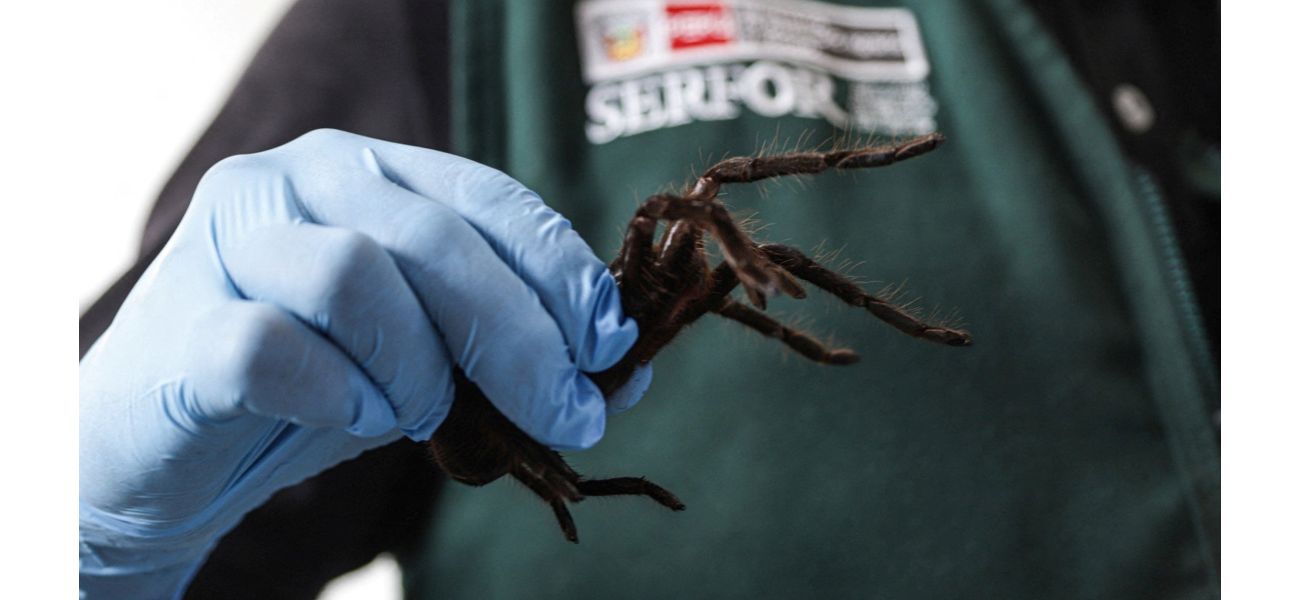Man caught with 300 tarantulas strapped to him by police, facing charges for smuggling.
A 28-year-old man in South Korea was found with hundreds of tarantulas, centipedes, and bullet ants attached to his body.
November 17th 2024.

A man, whose identity has not been disclosed, was taken into custody at Jorge Chavez International Airport in Lima, Peru. The 28-year-old South Korean was stopped by airport security for having a suspiciously "swollen stomach". Upon further inspection, officers discovered that he had strapped approximately 300 tarantulas, 100 centipedes, and nine bullet ants to his body.
The creatures were carefully hidden beneath the man's sweater in small plastic bags. Thankfully, they were all handed over to animal protection services, according to Pilar Ayala, a biologist from Peru's national forestry and wildlife service. The bags containing the creatures were attached to the man's body with the help of two girdles, as revealed by the police.
Ms. Ayala explained, "Upon closer observation, it was noted that the man had placed these specimens in small zip-lock bags with filter paper. These bags were then secured around his body with the help of girdles." This method of smuggling is not uncommon and is driven by the high demand for private souvenir collectors.
Alice Hughes, a biology professor at Hong Kong University, explained to the Telegraph that many collectors have a fascination with gathering these creatures "like Pokemon". The illegal trade of rare creatures, such as tarantulas, can be extremely lucrative, with collectors willing to pay large sums for them.
Chris Hamilton, a professor of insect studies at Idaho University, elaborated on the vulnerability of tarantulas to poaching. He stated, "Tarantulas are particularly susceptible to poaching due to their long lifespan. Some can even live up to 30 years, and females reproduce infrequently and later in their lifespan." This makes it even more concerning, as it takes a long time for their populations to regenerate after being disturbed by human activity.
The creatures were carefully hidden beneath the man's sweater in small plastic bags. Thankfully, they were all handed over to animal protection services, according to Pilar Ayala, a biologist from Peru's national forestry and wildlife service. The bags containing the creatures were attached to the man's body with the help of two girdles, as revealed by the police.
Ms. Ayala explained, "Upon closer observation, it was noted that the man had placed these specimens in small zip-lock bags with filter paper. These bags were then secured around his body with the help of girdles." This method of smuggling is not uncommon and is driven by the high demand for private souvenir collectors.
Alice Hughes, a biology professor at Hong Kong University, explained to the Telegraph that many collectors have a fascination with gathering these creatures "like Pokemon". The illegal trade of rare creatures, such as tarantulas, can be extremely lucrative, with collectors willing to pay large sums for them.
Chris Hamilton, a professor of insect studies at Idaho University, elaborated on the vulnerability of tarantulas to poaching. He stated, "Tarantulas are particularly susceptible to poaching due to their long lifespan. Some can even live up to 30 years, and females reproduce infrequently and later in their lifespan." This makes it even more concerning, as it takes a long time for their populations to regenerate after being disturbed by human activity.
[This article has been trending online recently and has been generated with AI. Your feed is customized.]
[Generative AI is experimental.]
0
0
Submit Comment





